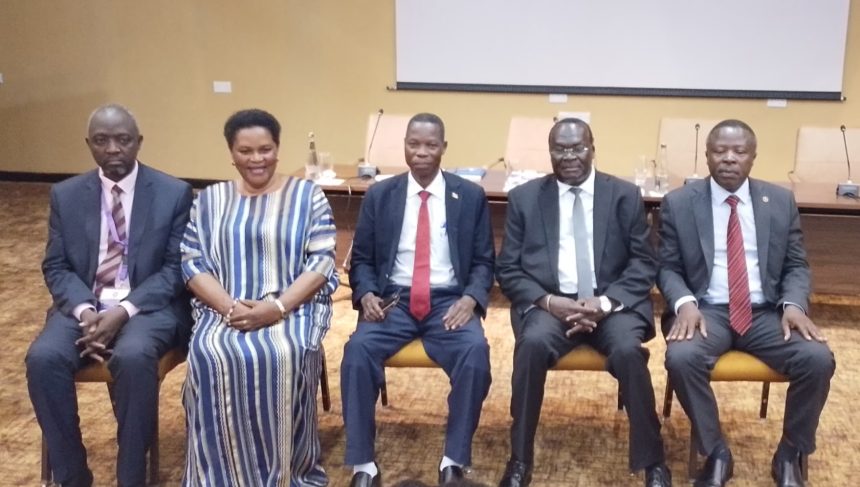During the Alternative Dispute Resolution (ADR) National Summit, a representative of the church, Bishop Lwere, inquired about President Museveni’s stance on the alternative justice system in communities.
Chief Justice Alfonse Owiny-Dollo tasked Professor Andrew Khaukha, Head of the Judicial Service Training Institute, to respond. Professor Khaukha assured the delegates that “His Excellency the President and cabinet have given the program the necessary legal backing.”
The spokesperson for the Bamasaaba cultural institution, Mr. Steven Masiga, informed the Ankole Times that His Highness Umukuka Jude Mike Mudoma has commended the Judiciary and President Museveni for recognizing the relevance of alternative justice in community disputes. “His Highness Jude Mike Mudoma is very comfortable with this method of resolving local disputes within his clans in Masaabaland,” Masiga stated.
He further emphasized, “Our people can’t afford legal fees, and ADR is helpful in maintaining harmony in our society, which courts may not do. I am in full support of this arrangement,” His Highness the Umukuka concluded.
The Legal Framework of Alternative Justice in Uganda
Steven Masiga highlighted the robust legal frameworks in place for resolving localized conflicts and disputes within communities. He stated that disputants are encouraged to utilize available formulas to resolve their issues, whether they pertain to cultural leadership, family matters, or community land wrangles.
He cited specific legal provisions applicable to cultural institutions, as recommended by Parliament: Article 246(2) and Article 126(2)(d), which promote reconciliation of parties through ADR. Additionally, he referred to Section 15(1) of the Cultural Leaders Act 2011 and the Arbitration and Conciliation Act Cap 5, as amended.
Masiga clarified that arbitration can be localized, nationalized, or internationalized. He noted that nearly all statutes, including the Contract Act, Company Act, and Labour Act, contain an arbitration clause. He also pointed out that even in criminal law, plea bargaining serves as a form of alternative justice, where an accused person confesses to their crimes in exchange for a reduced punishment.
Historical and Societal Context of ADR
Masiga shared an anecdotal example from his home area of Bukalasi. He recounted how suspected criminals, initially reluctant to confess to theft, would be tied and escorted towards the sub-county in Bulucheke.
However, there was a well-known stone in Bukalasi, adjacent to the Health Centre, which marked the boundary between Buwali and Bukalasi. “Any thief who would move past the stone just knew it was now serious jail business,” Masiga explained. “They quickly confessed their crimes, since it was impossible once you passed that stone to confess. I need to go back to Bukalasi and establish if the stone is still around.”
He also drew a parallel to biblical times, citing an instance where a prophet pleaded with God to spare a city with “filthy inhabitants,” progressively reducing the number of “good people” required until God agreed to spare the inhabitants if only 100 good people were found. This, Masiga suggested, exemplifies an early form of negotiation and alternative resolution.
The Umukuka has actively cascaded the message of ADR across the various clans in Masaabaland, with clan chairmen reportedly “in high cultural gear to welcome and bless the initiative.”
The use of ADR is not a novel concept, as elders have employed it for centuries. Statistics from the Judiciary indicate that 90% of cases are currently resolved “manually” within communities.
The Judiciary is actively promoting ADR to reduce the case backlog in Uganda, which is currently the highest in the region.




















